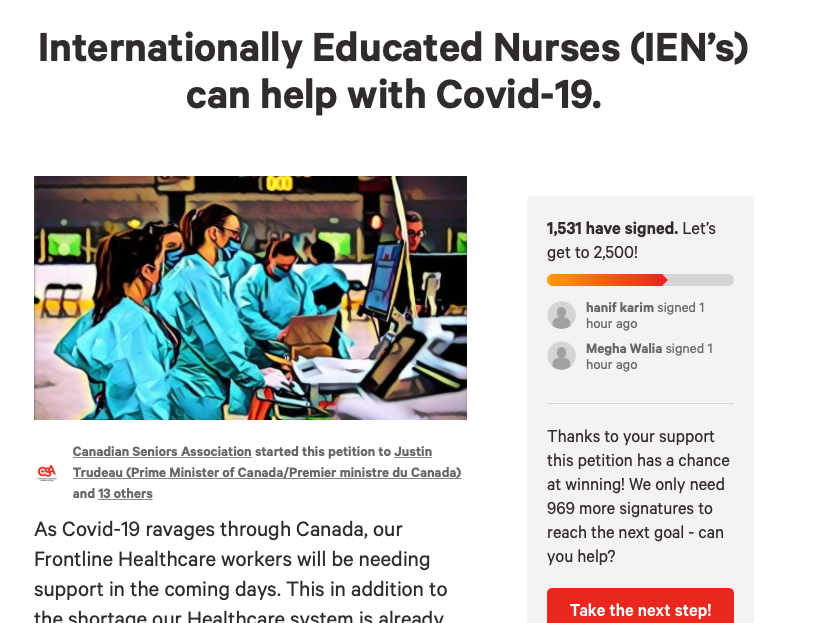BCCPA is calling upon our federal and provincial governments to work together to activate internationally educated nurses as part of the responses to the coronavirus pandemic. This was a key point in this week’s National Post op-ed by our CEO Daniel Fontaine. International health care professionals are willing to take on key roles as nurses and care aides in seniors’ care, and yet are currently being forced to sit on the sidelines due to restrictive regulations.
Staffing shortages have long been identified in the seniors’ care sector. As recently as 2019, non-government care providers have identified that there were 496 positions vacant for nurses and care aides throughout British Columbia.

The Provincial Health Officer’s order to move to a single-site staffing model—necessary to protect frail older adults from the spread of the novel coronavirus—may have the unintended consequence of exacerbating these existing staffing challenges. While nurses and care aides would normally be able to pick up casual shifts at other care homes, they are to be limited to on single site in order to limit the spread of the virus.
Under these new rules, some care staff may be required to work extensive overtime in order to ensure that seniors are properly cared for. This comes at a time with workers report that they are already feeling stressed and anxious due to being on the frontlines of a pandemic.
While BCCPA applauds the efforts of the B.C. Government so far to identify additional sources of health care workers, more work is needed. The B.C. Ministry of Health has been working to recruit retired medical health professionals, as well as creating a streamlined care aide enrollment process for nursing students.
However, no such streamlined process for internationally educated nurses (IENs) has been created. Despite the current climate, IENs are still being required to complete a costly and time-consuming credential recognition process.
Experts report that it typically takes a motivated IEN upwards of two years and $15,000 to become licensed as a Registered Nurses in British Columbia. It is also challenging for IENs to become registered in roles requiring much less training than an RN. It takes six months on average to become registered as a care aide, a role that is well within the scope of practice for an internationally trained nurses.

A new online petition — created by a party independent of BCCPA — ask governments to change their policies that prevent IENs from working in Canada, and to bring much-needed help during the pandemic.
As outbreaks in long-term care continue to be reported across Canada, as many as four other provinces– Ontario, Quebec, Alberta, and Newfoundland – have signaled their intent to similarly implement a single-site staffing order in seniors’ care. Yet, Ontario is among the few jurisdictions utilizing foreign-trained medical health professionals, having recently creating a portal to link health care workers (including those that are internationally educated) with employers in need of additional staff.
With many care homes seeking qualified health care workers during this challenging time, BCCPA strongly supports the view that it is time to activate internationally educated nurses. Their skill and passion are a much-needed cure for the staffing shortages that are costing lives during this ongoing pandemic.
To learn more about BCCPA’s ongoing advocacy on Health Human Resources, visit this information page.





